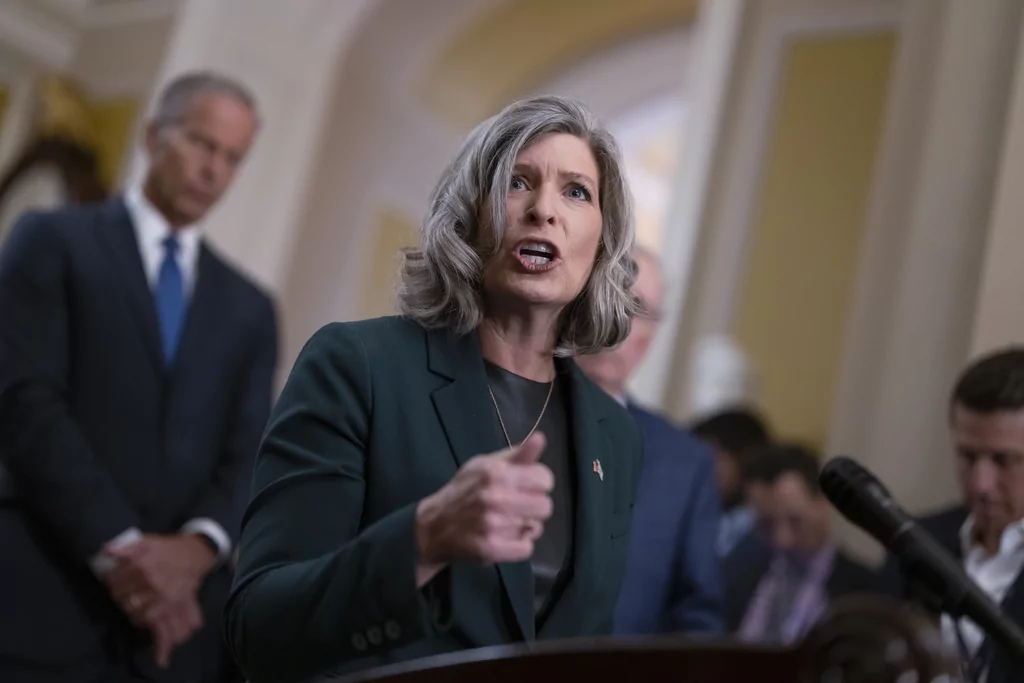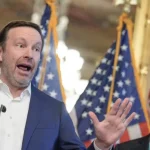
Sen. Joni Ernst (R-IA) accused the Small Business Administration of not being transparent about its spending of disaster relief funds after the agency ran out.
On Monday, President Joe Biden announced that theSBA’s disaster loan program ran out of money after hurricanes Helene and Milton. While those affected by the disasters can still apply for loans, funds will be unavailable until next month when Congress approves new funding. In the meantime, Ernst accused the SBA of not properly disclosing its financial situation, resulting in it running out of funds at an inopportune time.

“We are deeply concerned about the SBA’s handling of its disaster loan account and the SBA’s failure to provide its authorizing committees statutorily required information,” Ernst wrote. “These concerns are only heightened by the SBA’s lack of transparency, including the failure to provide an official Office of Management and Budget (OMB) request, and the requisite notifications and reports to authorizing committees.”
“These considerable missteps by your agency and its urgent supplemental funding request raise significant questions as to the SBA’s ability to monitor its disaster portfolio,” she added.
The Iowa senator blamed the SBA entirely for the funds running out, alleging it had failed to comply with legal requirements to disclose financial shortfalls in advance.
“Despite several news stories, the SBA failed to follow the law and only provided the statutorily
required written notification of a need for supplemental funding on October 10, 2024, days after
news stories broke,” she wrote. “Under existing law, the SBA already has several reporting requirements to provide Congress with sufficient notification and information before any shortfall occurs in its disaster account. Unfortunately, the SBA failed to comply, or only partially complied, with
several of these provisions and is now, at the eleventh-hour, sounding alarm bells.”
Ernst also hinted at possible political reasons behind the failure, adding, “We must consider whether SBA’s internal decisions were the catalyst for this unfortunate situation.”
She also claimed that the SBA conducted a costly expansion and failed to properly prepare its financials around it.
“Additionally, SBA’s decision to administratively change its disaster loan program terms in 2023 and again in 2024, lead to a substantial increase in its subsidy rate, which the SBA failed to properly model and did not properly notify authorizers of the ramifications of these changes,” Ernst wrote.
The letter was also signed by Sens. Tim Scott (R-SC), Todd Young (R-IN), and James Risch (R-ID).
New funding can’t be approved until Congress returns on Nov. 12, after the election. Officials have said that Congress will not be called back early despite calls to provide assistance to residents affected by the back-to-back hurricanes.
CLICK HERE TO READ MORE FROM THE WASHINGTON EXAMINER
The SBA assists renters, homeowners, and businesses recover after natural disasters. Those with existing loans will continue to receive payments, but no new loans can be issued.
The Southeast was hit with two deadly hurricanes over a short period, stretching the United States’s disaster response capabilities to its limit. Milton and Helene killed hundreds of people, making 2024 the deadliest hurricane season in years.





